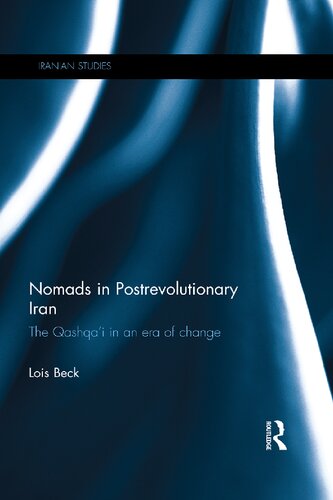

Most ebook files are in PDF format, so you can easily read them using various software such as Foxit Reader or directly on the Google Chrome browser.
Some ebook files are released by publishers in other formats such as .awz, .mobi, .epub, .fb2, etc. You may need to install specific software to read these formats on mobile/PC, such as Calibre.
Please read the tutorial at this link: https://ebookbell.com/faq
We offer FREE conversion to the popular formats you request; however, this may take some time. Therefore, right after payment, please email us, and we will try to provide the service as quickly as possible.
For some exceptional file formats or broken links (if any), please refrain from opening any disputes. Instead, email us first, and we will try to assist within a maximum of 6 hours.
EbookBell Team

4.1
70 reviewsExamining the rapid transition in Iran from a modernizing, westernizing, secularizing monarchy (1941-79) to a hard-line, conservative, clergy-run Islamic republic (1979-), this book focuses on the ways this process has impacted the Qashqa’i―a rural, nomadic, tribally organized, Turkish-speaking, ethnic minority of a million and a half people who are dispersed across the southern Zagros Mountains.
Analysing the relationship between the tribal polity and each of the two regimes, the book goes on to explain the resilience of the people’s tribal organizations, kinship networks, and politicized ethnolinguistic identities to demonstrate how these structures and ideologies offered the Qashqa’i a way to confront the pressures emanating from the two central governments.
Existing scholarly works on politics in Iran rarely consider Iranian society outside the capital of Tehran and beyond the reach of the details of national politics. Local-level studies on Iran―accounts of the ways people actually lived―are now rare, especially after the revolution. Based on long-term anthropological research, Nomads in Postrevolutionary Iran provides a unique insight into how national-level issues relate to the local level and will be of interest to scholars and researchers in Anthropolgy, Iranian Studies and Middle Eastern Studies.